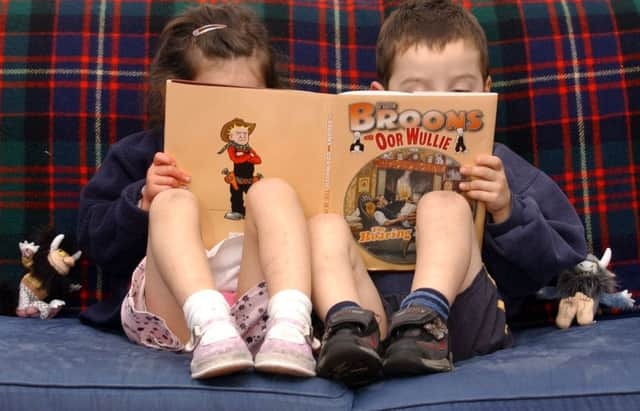Early language skills vital for poorer children


While being able to read well is critical for children’s prospects at school and later in life, one in five youngsters who are growing up in poverty are unable to read well by the time they finish primary school.
The research, from the Read On, Get On campaign, said this “helps explain the persistent educational divide in Scotland that each year prevents thousands of our poorest children from fulfilling their potential”.
Advertisement
Hide AdAdvertisement
Hide AdThe campaign group, a coalition of charities including Save the Children and literary agencies, is now calling on the Scottish Government to invest in early-years education to ensure all nurseries have at least one member of staff who has a graduate level qualification in early language or literacy.
A child who has an above-average vocabulary at the age of five and who has not been in poverty will do better throughout primary school than a similar-age child who has below average vocabulary skills and has suffered from persistent poverty.
Children from a better-off background and with greater vocabulary skills will score on average 36 per centmore in reading tests at the age of seven and will also be an average of 22 per centahead in comprehension tests when they are 11.
The report said: “Learning to read well starts early and good early language skills are the vital stepping stone.
“If children do not learn to speak and listen from an early age, along with developing their understanding of the meaning of words and stories, they will struggle to learn to read well when they get to primary school
“The Read On, Get On campaign has therefore set an interim goal that every child in Scotland has good language skills by the time they start school.
“Boosting children’s early language skills is therefore critical to narrow the attainment gap and improve the life chances of our poorest children.”
By the age of five most children should be able to speak in full sentences and use most of the everyday words that adults use, according the group.
Advertisement
Hide AdAdvertisement
Hide AdAt this stage, youngsters should also be asking lots of ‘why?’ questions as they try to understand the world around them, and should be able to talk confidently about the past and the future.